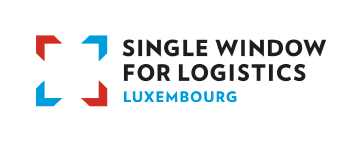Definition
Explosives are defined in the United Nations recommendations relating to the transport of dangerous goods.
An explosive substance is a solid or liquid substance (or a mixture of substances) that is capable, in a
chemical reaction, of producing gas at such a temperature and pressure and at such a speed as to cause damage to the surroundings.
A pyrotechnic substance is a substance (or mixture of substances) used to produce an effect of temperature, light, sound, gas or smoke or a combination of such effects, as a result of non-detonating self-sustaining exothermic chemical reactions.
Note: the law governing explosives for civil uses does not apply to explosives or ammunition for military uses or to pyrotechnics.
European laws specify special rules for dual-use goods, in particular the obligation to obtain an authorization to export or transit certain listed goods. This list of dual-use goods can contain certain explosives.
Likewise, there is an authorization system for the import, export, transit and transfer of some arms and military equipment, including certain explosive substances.
An explosive precursor is a substance or mixture that may be misused in the illicit manufacture of explosives.
Obligations and controls
Explosives for civil use available on the European Union market must bear the “CE” marking to show that they are compliant with all of the essential safety requirements specified by European regulations. For that, manufacturers must carry out a compliance evaluation, establish the detailed technical documentation of their products and be able to demonstrate traceability.
The documentation and safety information must be written in one of the national languages or else in English, so that such documentation and information can be easily understood by users.
Manufacturers and importers must moreover indicate their postal address on the explosive.
Importers must also ensure that the manufacturers have carried out the compliance evaluations and inform the designated national authority for safety control (the ILNAS in Luxembourg) if they believe that the explosives represent a risk.
All of the necessary documents must be stored and kept for a period of 10 years.
No intra-Community movement of explosives may be carried out if the recipient has not obtained the necessary authorizations for that purpose.
If there is adequate proof that the explosive products are subject to illicit acquisition, use, or trafficking, these products may be seized.
In order to prevent the criminal or terrorist use of homemade explosives, the public at large is not authorized to purchase, hold, use or introduce in the territory, any of the substances listed in appendix I of the European regulation on the marketing and use of explosive precursors if their concentration exceeds the limit value indicated in the regulation.
Stores and companies must also inform the national point of contact of the Grand-Ducal Police of any suspect transactions of explosive precursors listed in Appendix II of the regulation, including transactions involving professional users.
Economic operators must also report any significant disappearance or theft of these substances, or of mixtures or substances containing them, to the national point of contact.
Transfer authorization
To be able to transfer explosives to or within the national territory of the Grand-Duchy of Luxembourg, the recipient must:
- Complete the application form (see website under construction at www.itm.lu)
- Hold an operator’s authorization pursuant to the amended Law of 10 June 1999 on classified establishments covering the storage of explosives
The applicant who meets these conditions will be given an authorization for national or international transfer of explosives to destination or within the national territory for an unlimited time.
For intra-community transfers, the applicant must send the authorization for transfer of explosives to the competent authority in the country of origin of the explosives and obtain that authority’s signature.
The applicant who wishes to transfer explosives from Luxembourg to a destination in another Member State of the European Union must:
- Hold an authorization for intra-community transfer of explosives issued by the competent authority in the destination country
- Provide that authorization to the Luxembourg Inspectorate of Labor and Mines (ITM) for countersignature
- For transfers through the territory of the Grand-Duchy of Luxembourg, the applicant must:
- Receive the countersignature for that authorization by the country of origin of the explosives
- Provide the said authorization to the Luxembourg Inspectorate of Labor and Mines (ITM) for countersignature
The transfer authorization must accompany the goods during transport.
Related organizations
The Inspectorate of Labor and Mines is the authority that delivers the necessary authorizations for the transfer of explosives to or within Luxembourg and is authorized to perform the related controls.
The ILNAS is the national authority designated for the control of the security of explosives. It is in charge of ensuring, with the help of the Customs and Excise Administration, that the explosives marketed in Luxembourg comply with all the provisions of the Grand-Ducal regulation, that they hold the CE marking and that they have undergone a conformity inspection.


